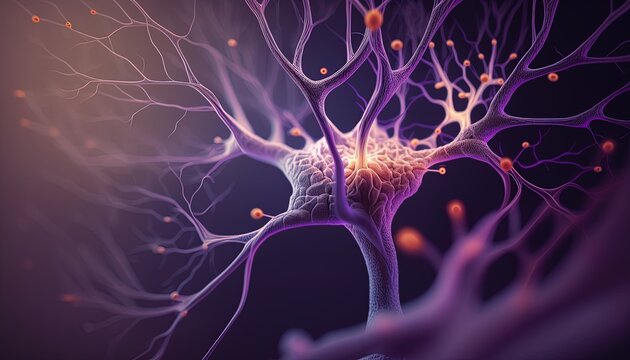The vagus nerve, a crucial component of the body’s autonomic nervous system, has long been recognized for its role in regulating internal organ functions, including digestion, heart rate, and respiratory rate. However, recent research has shed light on its profound connection with the gut microbiota-brain axis, revealing significant implications for human behavior and the progression of neurodegenerative diseases. This article explores the underlying impacts of the vagus nerve on this axis, providing insight into how this nerve not only communicates but also influences our mental health and neurological health.
Understanding the Vagus Nerve
Spanning from the brainstem down to the abdomen, the vagus nerve is the tenth cranial nerve and the longest nerve of the autonomic nervous system. It performs a wide array of functions, primarily facilitating parasympathetic responses—the “rest and digest” processes of the body. Its name, derived from the Latin word for “wandering,” aptly describes how it meanders through the body, innervating various organs.
The Gut Microbiota-Brain Axis
The gut microbiota-brain axis is a complex, bidirectional communication network that connects the central nervous system with the enteric nervous system in the gastrointestinal tract. This axis integrates the emotional and cognitive centers of the brain with the peripheral intestinal functions, playing a crucial role in maintaining bodily homeostasis. The health and balance of the gut microbiota are essential to this network, significantly influencing how effectively it functions and impacting overall well-being.
Gut-Brain Connection: The Link Between Gut and Mental Health
Role of the Vagus Nerve in this Axis
Behavioral Implications
The vagus nerve is instrumental in transmitting signals from the gut to the brain and vice versa. It plays a significant role in modulating mood and anxiety levels, largely through its interactions with gut bacteria. Dr. Helen Fields, a neurogastroenterologist, explains, “The vagus nerve can alter its signaling based on the chemical messages it receives from gut bacteria, which produce various neurotransmitters and metabolites.” These substances can affect brain functions, influencing behaviors and emotional responses.
Impact on Neurodegenerative Diseases
Recent studies have highlighted a potential link between the stimulation of the vagus nerve and a decrease in the symptoms of neurodegenerative diseases such as Parkinson’s and Alzheimer’s. The hypothesis is that vagus nerve stimulation (VNS) may enhance neurogenesis and neuronal plasticity, thereby slowing the progression of neurodegenerative diseases. “VNS has shown promise in not only modulating neural activity but also in fostering a healthier gut microbiome, which could be beneficial in managing neurodegeneration,” says Dr. Fields.
Vagus Nerve Stimulation (VNS) Techniques
Vagus Nerve Stimulation (VNS) is administered using several techniques, ranging from surgically implanted devices that send electrical impulses directly to the nerve, to less invasive options like transcutaneous VNS, which stimulates the nerve through the skin. These methods are currently under investigation not only for their effectiveness in treating conditions such as depression and epilepsy but also for their wider implications on gut health and neurological disorders. This exploration is pivotal as it expands the potential uses of VNS beyond traditional applications, potentially offering new therapeutic avenues for a variety of health issues linked to the vagus nerve.
Future Directions
The exploration of the vagus nerve’s role in the gut microbiota-brain axis is opening new pathways for treating behavioral disorders and neurodegenerative diseases. Ongoing research is needed to fully understand the mechanisms by which the vagus nerve influences the gut-brain interaction and to optimize VNS techniques for therapeutic use. This research is crucial as it holds the potential to revolutionize our approach to mental health and neurological conditions, providing more targeted and effective treatments. Furthermore, understanding these interactions may lead to preventative strategies that could delay or even prevent the onset of disease by maintaining gut and brain health through vagus nerve modulation. As we unravel more about this vital connection, it becomes increasingly clear how significant a role the vagus nerve plays in overall health and disease management.
Conclusion
The intricate relationship between the vagus nerve and the gut microbiota-brain axis offers profound insights into human health and disease. By harnessing the power of this relationship, medical science could revolutionize the approach to mental health disorders and neurodegenerative diseases, offering new hope for millions affected by these conditions. As our understanding deepens, the potential for innovative treatments that target this connection grows, marking an exciting frontier in both neuroscience and gastroenterology.


